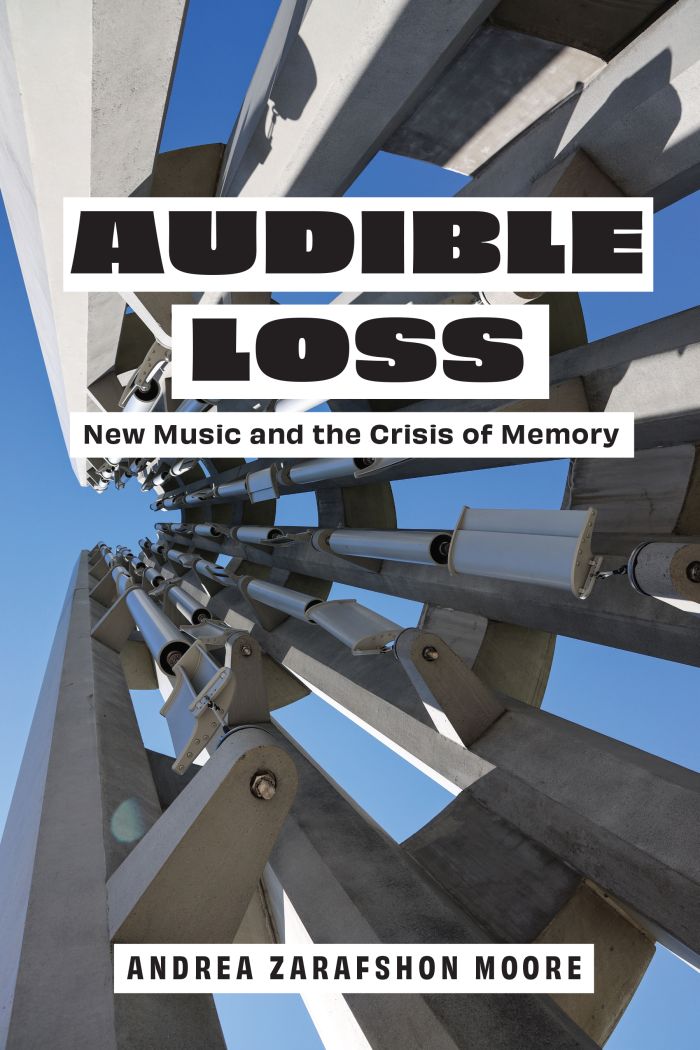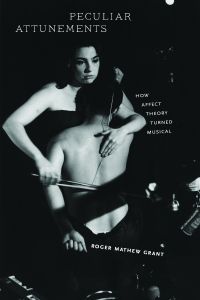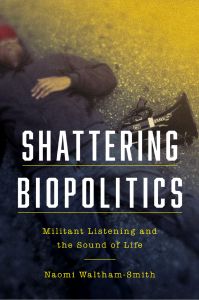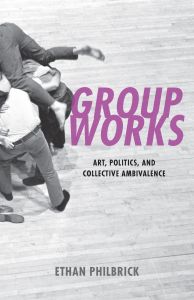Audible Loss
New Music and the Crisis of Memory

This book can be opened with

An innovative and much-needed critical work on music and memorialization in relation to AIDS, 9/11, and anti-Black violence in America
Music has long served as a powerful medium for communal mourning and remembrance in times of crisis. Audible Loss examines musical responses to three major crises in US society at the turn of the twenty-first century: the AIDS epidemic, the terrorist attacks of September 11, 2001, and the ongoing conditions of anti-Black violence.
Analyzing a range of works written to commemorate these losses, Andrea Zarafshon Moore explores how contemporary classical music (aka “new music”) frames and narrates these crises, gives voice to grief, imagines other possibilities, and makes loss audible. These crises are read alongside one another to reveal the ways they are mutually imbricated, while also recognizing the sheer commemorative dominance of 9/11 in this century. Attending to broader debates and discourses through which commemoration is always filtered and the ways interpretive consensus has been sought and articulated in both musical and other memorial forms, Moore probes the conventional claims of commemoration, particularly those for the necessity of remembrance to “healing” and the prevention of future crises.
Audible Loss concludes by reflecting on the limits of existing commemorative forms and the possibility, even necessity, of new ones. Taking the COVID-19 pandemic as a case study, it proposes that while memorials of all kinds may provide outlets for collective remembrance and even mourning, their power to forge a sense of collectivity is diminished as public discourse grows more fragmented. Deeply informed yet highly approachable, Audible Loss is a major contribution to the fields of music and memory studies and essential reading for anyone interested in memory culture in the United States today.
What is the sound of loss? Audible Loss is an innovative and timely intervention in memory studies, that engages with the question of how composers, activists, and artists have aimed to make loss audible – whether through the reading of names, through musical memorial compositions, through the marking of silence, or the orchestration of chimes and bells. Moore takes us on a compelling journey into how sound has been a primary medium through which American traumatic events such as AIDS, 9/11, Black Lives Matter, and COVID have been communicated.—Marita Sturken, author of Terrorism in American Memory: Memorials, Museums, and Architecture in the Post-9/11 Era
In Audible Loss, Andrea Zarafshon Moore makes a powerful and persuasive argument for understanding the role that music can play in public memorial culture. Through her breadth of repertoire, pertinent analytical frameworks, and thoughtful attention to contemporary public crises, Moore offers readers both new material and new methods for listening to the memorial arts. Audible Loss is sure to become a landmark contribution to contemporary dialogue about memory culture in the United States, in music studies and across the disciplines.—Martha Sprigge, Associate Professor of Musicology at University of California Santa Barbara and Author of Socialist Laments: Musical Mourning in the German Democratic Republic
Introduction: Music, Crisis, Memory | 1
1. Absent Names, Present Lives: Art Song as Intimate Memory | 25
2. Sounding Witness: Musical Testimony and Memorial Stakes | 59
3. Loss Without Words: Musical Memory Beyond the Discourse | 91
4. Envisioning the Present: Music as Speculative Imagination | 122
Epilogue: All the Trembling Bells | 153
Acknowledgments | 171
Notes | 173
Bibliography | 193
Index | 217




